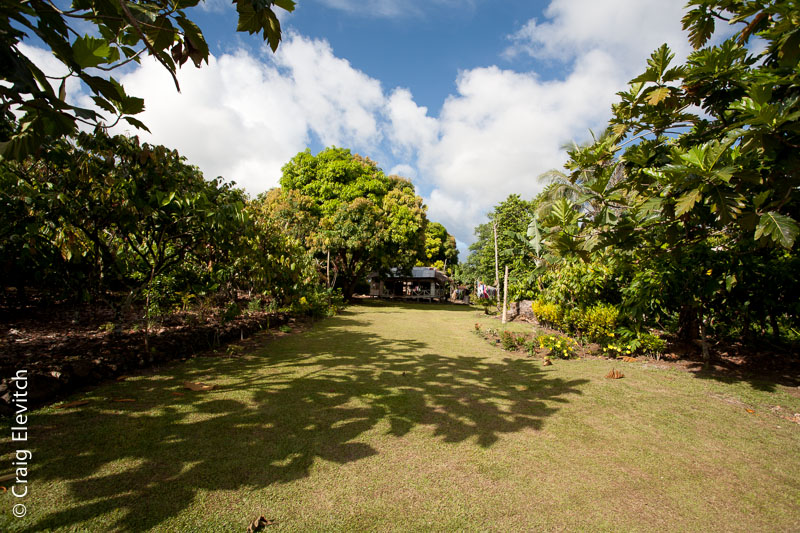2012 Annual Report for EW11-014
Hawai'i Community-Based Food Security
Summary
This project is developing a much-needed manual and statewide workshop series focusing on sustainable perennial food-producing landscapes. Integrating perennial food plants in private and public landscapes has many advantages, including:
- Increasing food production in urban, periurban, and rural areas where the food is consumed, avoiding reliance on fossil-fuel dependent distribution systems. Reallocating some of the fertilizer, pest management, fuel, and labor resources that are currently consumed in ornamental landscapes to growing food. Providing opportunities to supply small, local farmers markets with produce. Expanding opportunities for value-added cottage industries such as preserves, baked goods, fermented products, and other specialty items.
Objectives/Performance Targets
There are four outputs from this project:
a. Sustainable, perennial food-producing landscapes manual for Hawai‘i
b. Five workshops in the Hawaiian islands
c. A marketing/information kit for commercial and government landscape professionals
d. A policy brief for elected officials, civil servants, and NGOs
Accomplishments/Milestones
 The first phase of the project to produce a manual focusing on low-input and sustainable techniques for perennial food-producing landscapes is well under way. Draft sections have a combined length of over 72 pages and include over 100 photographs. Section drafts covering the following topics have been written:
The first phase of the project to produce a manual focusing on low-input and sustainable techniques for perennial food-producing landscapes is well under way. Draft sections have a combined length of over 72 pages and include over 100 photographs. Section drafts covering the following topics have been written:
- Fruit and nut trees for environmental services such as shade, windbreak, erosion control, and noise barriers, their use and maintenance; NRCS practice standards that support their use. Important traditional Pacific island agroforestry systems that have proven to be sustainable and crops that thrive in Hawai‘i, including breadfruit, banana, and coconut. Tropical perennial leafy vegetables for hedges and groundcovers. Small-scale enterprise development and value-added processing based on perennial food plants. Integrating small-scale livestock production in agroforestry landscapes. Water conservation techniques through use of drought tolerant perennial food plants, micro-irrigation and utilization of run-off water. Soil fertility maintenance using locally available resources, including mulching, composting, and vermiculture. Alternatives to toxic herbicides, including elimination of bare soil through mulching and low maintenance edible ground covers.
The current manual manuscript is undergoing review and author revisions. Once the manual is complete, five workshops will be held for agricultural extension, government agencies, community planners, landscapers, and farmers. A marketing/information kit will be developed to assist landscapers in promoting edible landscapes to their clientele. A 2–3 page brief describing the needs, benefits, and recommendations for perennial food-producing landscapes on private and public lands will be produced for dissemination to elected officials, civil servants, community organizations, and educational institutions.
Impacts and Contributions/Outcomes
To date, this project has not released any educational products to the public, so impacts are so far nominal.
Collaborators:
Director
Regenerations Botanical Garden
P.O. Box 1137
Kilauea, HI 96754
Office Phone: 8086524118
Website: http://www.regenerationsbotanical.org/
Assistant Specialist
Department of Tropical Plant and Soil Sciences University of Hawaii at Manoa
3190 Maile Way
102 St. John
Honolulu, HI 96822
Office Phone: 8089567909
Website: http://www.ctahr.hawaii.edu/radovicht/index.html
Director
Nature Talks
Post Office Box 510016
Kealia, HI 96751
Office Phone: 8086343021
Website: http://www.naturetalks.net